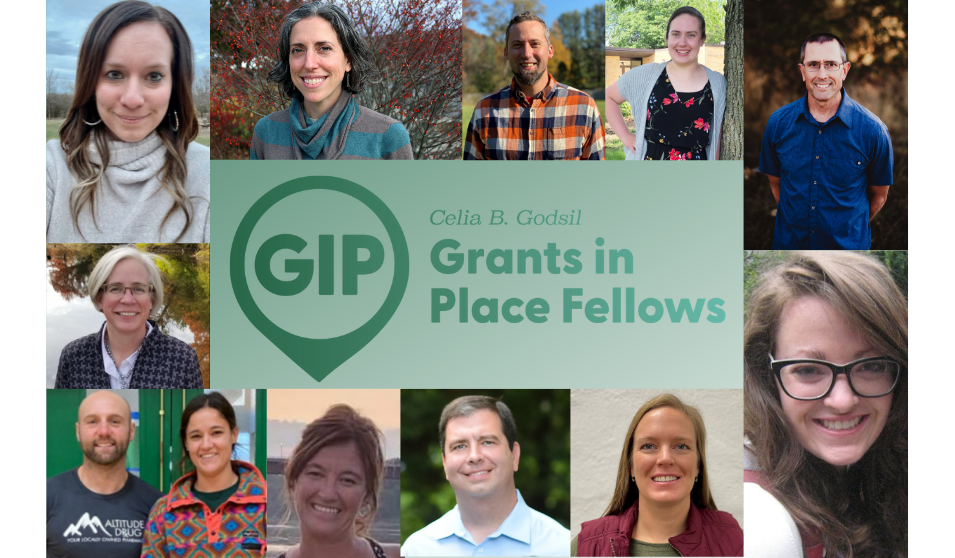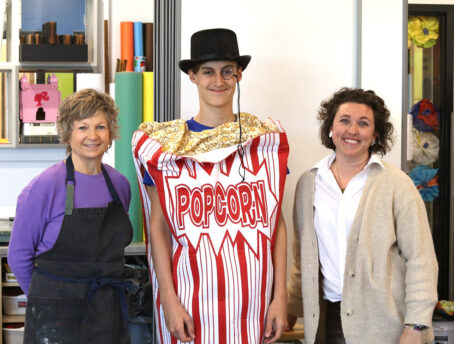Rural Schools Collaborative is excited to announce the 2021-22 Celia B. Godsil Grants in Place Fellow Recipients. The Fellows will each work with their students on place-based projects within their school’s community. Each Celia B. Godsil Grants in Place Fellow receives a grant which will support the place-based project, a professional development presentation, and an honorarium for the educator. The Grants in Place program is funded through the generous support from Celia and Mark Godsil in honor of Celia's career as a public school teacher and their belief in the importance of classroom teachers to rural communities. Learn more about the program here!
Please read more about the 2021-22 Fellows and their place-based projects!
Massachusetts: Talia Miller
Colrain Central School, Colrain, MA.
“Service Learning Mini Grants to Support our School Wide River Studies”
Talia Miller has taught in elementary and middle schools for many years and she is currently the Service-Learning Coordinator at Colrain Central School in Colrain, Massachusetts. In her current role, Talia helps to facilitate her school's service-learning initiative by offering professional development, co-teaching units, building community partnerships and coordinating service-learning in Pre-K through sixth grade. Colrain Central School is a small, rural school of about 110 students in the rolling hills of Western Massachusetts. Talia loves building connections to the community and working with teachers to support a shared vision for the school. Talia loves to spend time hiking with her family, running, and cross-country skiing. She also has a background in environmental education and mindfulness training.
Colrain was home to William Apess, an Native American of the Pequot tribe and an early civil rights activist. This history is little known to most of the residents in Colrain. The local library has asked Colrain Central school to help the town to develop a celebration for the third annual William Apess Day. This celebration will be designed to help the town recognize and celebrate the work of William Apess and the role of indigenous peoples of their area. Other needs their community partners have approached them about consist of helping them to prepare for climate change and to consider how to reduce their vulnerability to flooding and natural disasters. The students will work with local scientists, land trust employees, and U.S. Fish and Wildlife to come up with the solutions.
After working with our community partners and learning about their problem, each class will work together to come up with a proposal for a solution. The project will be entirely student-driven, and will not only impact the students, but the town and community as a whole.
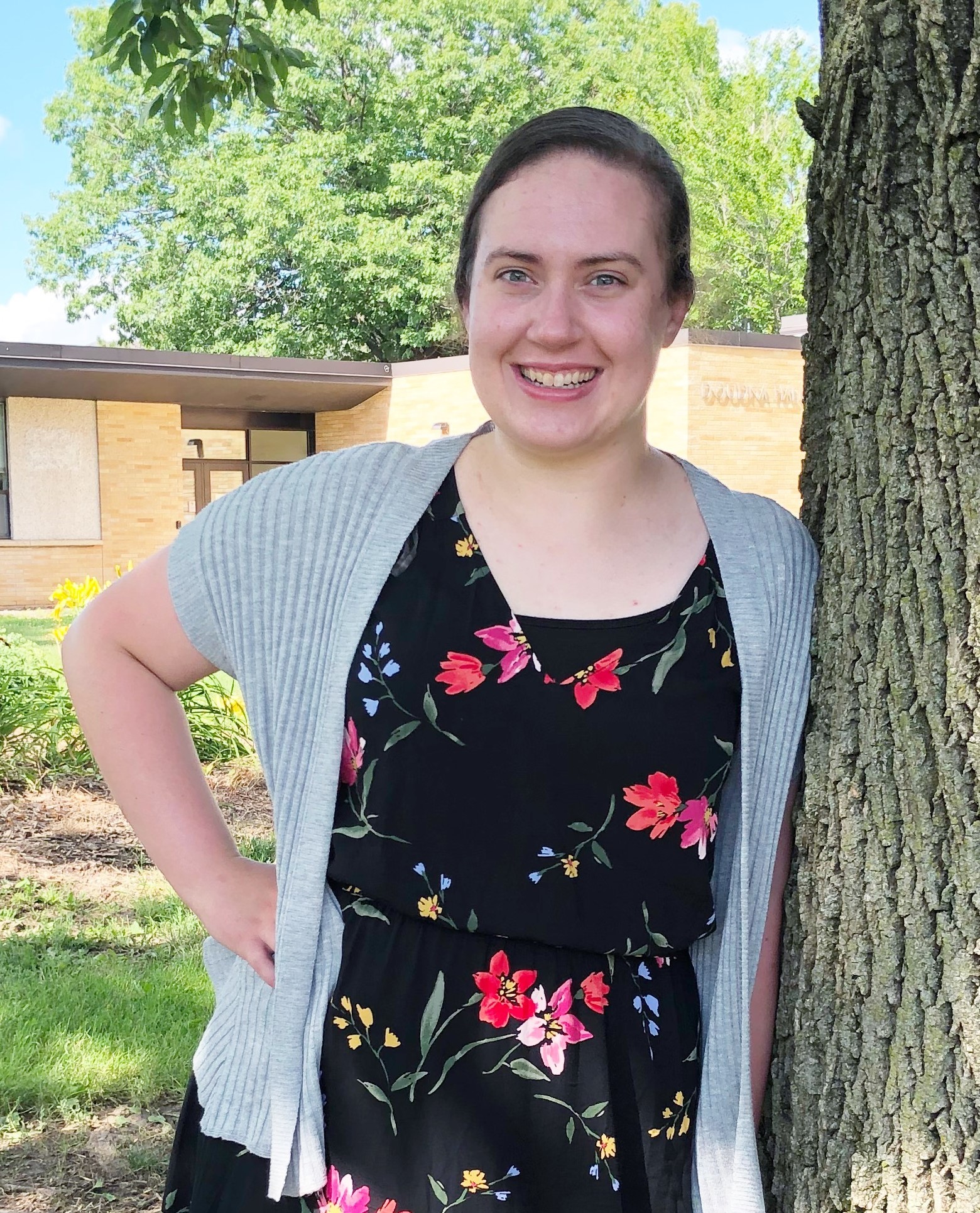
Wisconsin: Abigail Parker
Coloma Elementary , Coloma, WI.
“Pollinator Garden”
Abigail Parker is a first-year kindergarten teacher who graduated from the University of Wisconsin-Platteville this past May. Currently, Parker teaches in a small rural school in central Wisconsin.
Abigail and her kindergarten class will be working on The Pollinator Garden. The project will be part of the solution to bring more honey bees to the central Wisconsin area. The Pollinator Garden will attract butterflies, honey bees, birds, and different types of insects. The project will allow the students to learn about the lifecycle of a butterfly, honey bees, and many other insects. Abigail’s students will have the opportunity to learn about different kinds of plants while having hands-on experience doing the planting themselves. Additionally, they will also learn about biodiversity and gain an environmental awareness which is vital for the future generation.
The Pollinator Garden will provide learning that directly correlates to the kindergarten learning standards that go along with her science curriculum. Each grade plans to use the pollinator garden as well. A Little Free Library will be set up in the pollinator garden for children in the community and school to bring, take, or read books. The pollinator garden will not only reach beyond the school to the local community members, but also reach past the community with hopes that it can increase the honey bee population in the area which will then help the farmers in the local rural area.
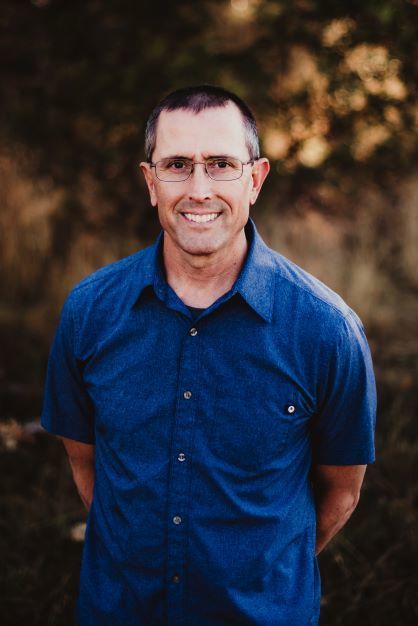
California: Andy Felt
Southern Trinity High School, Mad River, CA
Andy Felt is a native of Humboldt County California. He earned a bachelor’s degree from Humboldt State University in 1996 and a teaching credential in 1997. He taught at Bear River High School in 1998 and then landed his dream job at Southern Trinity High School in 1999. He later earned an MA in School Counseling from the University of LaVerne and an Administrative Services credential from Humboldt State University. Mr. Felt has been at Southern Trinity High for twenty-three years and has taught a variety of classes, served as the guidance counselor, the assistant principal, and now the principal of both Southern Trinity High and Van Duzen Elementary. He has coached the better part of his career in wrestling, cross-country, and track & field.
Many homestead sites have transitioned from private property to USDA Forest Service lands. Students will use materials produced by solararch.org, which is an archaeological organization, to begin researching homesteads in the area. They will learn map reading and navigational skills so they are able to locate sites based on published data. They will compare the current conditions of these sites to what has previously been reported, especially noting the impact that California's largest wildfire, the August-Complex, had on the homesteads. They will also interview several ranchers in the region that are descendants of the homesteaders. Students will document the interviews and hopefully get photographs of the homesteaders that are not currently publicly available.
The students will learn to write and preserve history instead of just reading about it. Their research and findings will be posted digitally in addition to being published in a small book. These books will be made available to the community. They will learn navigational skills along with basic emergency preparedness for hiking in rural remote areas. In addition, they will develop photographic, writing, and interview techniques. Their work and the end product will be something no other students have done in this area. It is something that will connect them, the school, and the community together and foster ongoing dialogue.
Wyoming: Camille Dudrey & Dylan Bear
Pinedale High School, Pinedale, WY
“Fuel Reduction”
Camille Dudrey: Camille Dudrey is in her 8th year of being a math teacher in Pinedale, Wy. She is originally from Sheridan, Wyoming where she graduated high school and discovered her passion for math. She received her Bachelors in Secondary from the University of Wyoming. Camille was in the inaugural cohort of Storer Scholars and has spent the past seven years integrating Place Based Education into her teaching curriculum.
Dylan Bear: Is a Physical Education Teacher in Pinedale, Wyoming. For the past 11 years he has been taking jobs during the summer months to continue to learn outside of the classroom. Along with his passion for teaching, Dylan is also a carpenter, wildland firefighter and a backcountry guide.
This project will be implemented by two teachers in different content areas. Students from Probability and Statistic (P/S) classes will work in conjunction with Life Sports (L/S) students to research and accomplish their tasks. The P/S and (L/S classes) will do a meta-analysis on fuel reduction including: fuels that cause greater risk for severe fires, what can be/ has been done to reduce the risk of severe burns, how/if fuel reduction is affective as well as the man power and resources to fight a wildfire vs. the man power and resources to clear fuel. When students have completed their meta-analysis they will work with local entities to clear an area of the forest appropriately according to the analysis.
Through this process, the students will collect their own data and create a professional presentation. This presentation will include: the projects name and description, conclusions from the meta analyses, what the project was meant to accomplish, predicted risks for before and after the project, predicted man power saved based on actual man power used, how this helped the community (large impact), and what we can do as individuals to reduce the risk of wildfires and severe wildfires.
Missouri: Amy Kaufman
Glenwood Elementary School, West Plains, MO
“The Arena”
Amy Kaufman began her teaching career at Glenwood Elementary seven years ago while teaching 4th grade. In her fourth year at Glenwood she moved to 6-8 middle school Science and has taught Science for the last four years. She enjoys the life of a rural school teacher with the smaller classroom sizes and a more personalized setting with my students.
As a continuation of Amy’s Place-Based Wealth and Poverty curriculum unit, students identified a need for increased nutritional food assistance within their school community. The Arena will include three interconnected, educational sections: a greenhouse, a chicken coop, and a technology building. The greenhouse will provide hands-on opportunities for students to cultivate unique heirloom seeds and nutrition-dense, delicious food, season after season. The chicken coop will allow students of different learning styles to connect on a deeper level with the education they are receiving and collaborate with peers and community members to offer enriching experiences beyond the textbooks.
The technology center will enhance student understanding of marketing, economics, and technology. Technology is vital for farmers both in the field and in selling their products. The goal is to work closely with community partners to bring local and regional resources in support of their efforts to strengthen their school and community connections to create a cultural shift toward improved education, community health, and economic vitality.
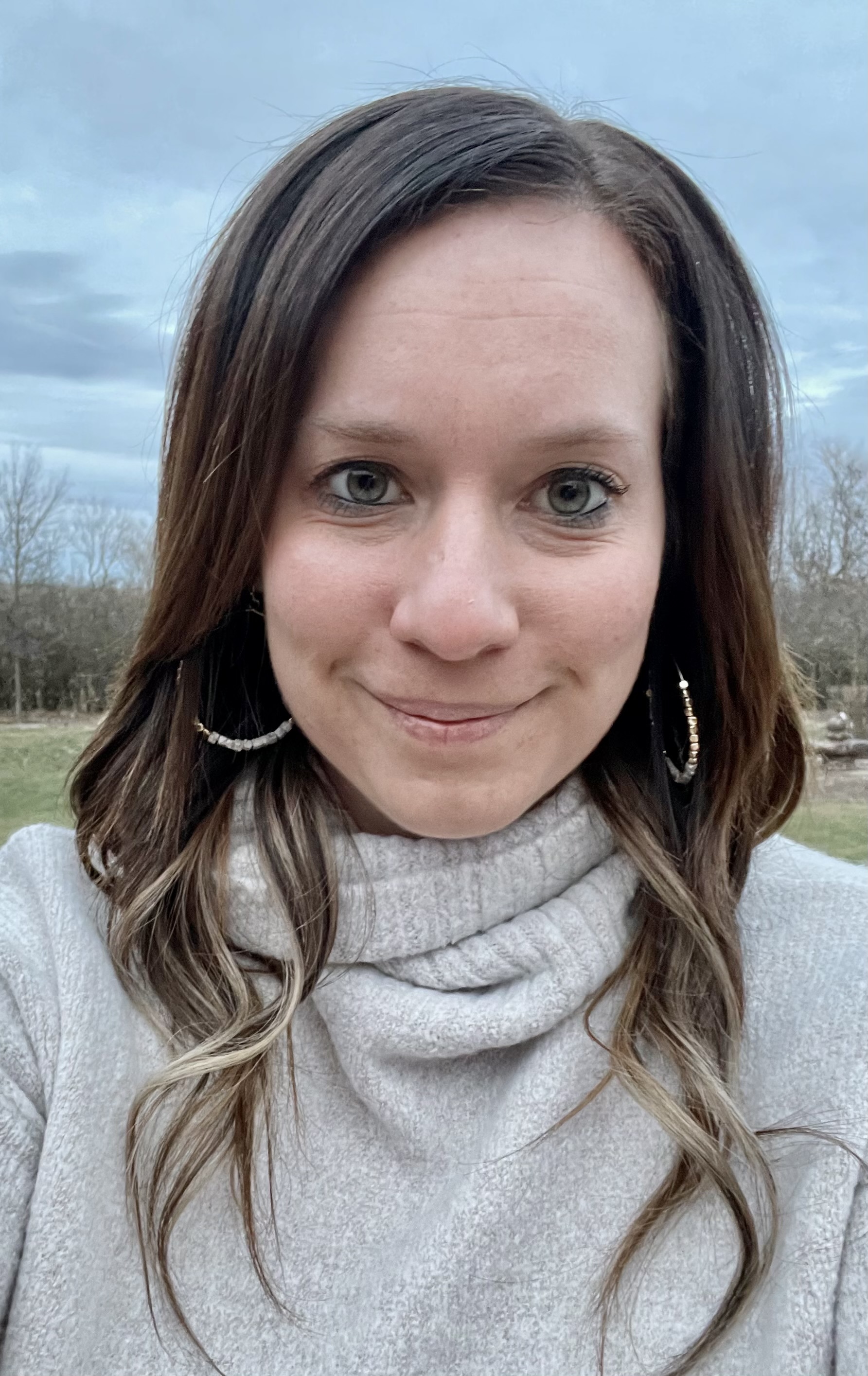
North Dakota: Stacie Stecker
Belfield High School, Belfield, ND
“Community Parks Restoration”
This is Stacie’s third year as the High School English teacher in Belfield, North Dakota. Outside of her classroom, she also coaches Speech, Drama, and Student Congress. Stacie is originally from West Liberty, Iowa and obtained her Bachelor's Degree from the Iowa State University. Upon moving to North Dakota, she pursued and obtained her Master of Arts in Teaching Degree at Valley City State University. Stacie loves teaching and working with her students every day. Stacie’s goal is to not only educate on content, but also on character, and make a difference in the lives of those around her - which she believes starts with building future generations of leaders.
Ms. Stecker and her student's project, Community Park Restoration, is focused on utilizing leadership skills within the community to build strong community partnerships, while restoring the parks in town. Students will research the best landscaping practices for their area and work closely with the community parks board to implement them. Like their school, Belfield High School’s, motto says, “Preparing for tomorrow, today.” This project embodies that idea. Learning about and actively engaging in the community today, and developing pride in themselves, their school, and their community, will prepare students to be active citizens and effective leaders in the future.
Iowa: Pamela Josyln
Susan Clark Junior High, Muscatine, IA
“Reducing Organic Waste - A school and community partnership”
Pamela Joslyn, entering her 29th year of teaching, is a science educator at Muscatine Community School District. She received her B.S. in Genetics from Iowa State University and a M.S. in Science Education from Montana State University. Pamela has taught physics, AP Physics I & II, chemistry, earth science, physical science, biology and middle school. Currently, Pamela is piloting a community-school partnership to reduce organic waste through a collaboration with the City of Muscatine.
Students will partner with the City of Muscatine Organic Recycling Center to reduce the amount of organic waste transferred to the landfill. Collaborating with the community schools and staff at the Muscatine Organic Recycling Center (MORC), students will create solutions to separate organic waste in their school and residences. Students will communicate the importance of reducing organic waste and highlight local attempts at reducing landfill waste, an environmental factor that contributes to global climate change. The students will meet the Next Generation Science Standard (NGSS): ESS3-3 Apply scientific principles to design a method for monitoring and minimizing a human impact on the environment.
The project will enable the students to participate in an interdisciplinary approach to problem solving. The students provide a different lens to waste management, communication, and significance of climate change impacts. Students will gain not only content knowledge, but valuable collaboration and communication skills. Students will understand that the collection of data, analyzing data, and the communication of data is a vital component in facilitating change in policy. Most importantly, students will understand that they can make a positive difference in their home, school, and community.
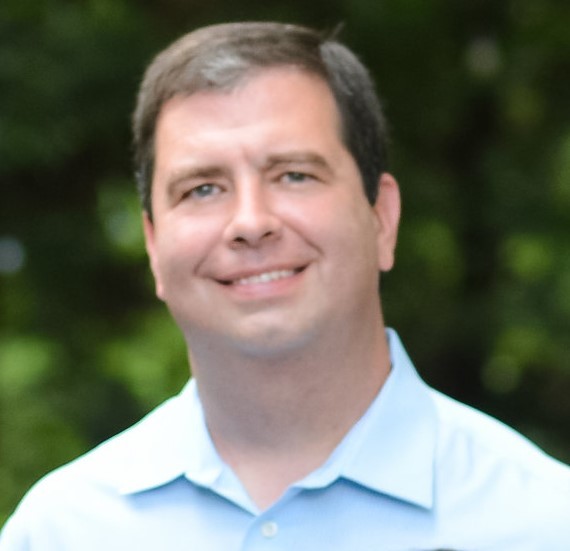
Alabama: Brandon Renfroe
Geraldine High School, Geraldine, AL
“Saving the Little River”
Brandon Renfroe has taught secondary science in public schools for 17 years. He holds a BS in biology (Jacksonville State University, 2001), an MA in secondary education (The University of Alabama at Birmingham, 2008), and an EdS in teacher leadership (Jacksonville State University, 2020). He is a doctoral candidate at the University of West Alabama and is currently conducting dissertation research on food insecurity in Alabama's Black Belt. Brandon resides in DeKalb County, Alabama, with his wife, Amanda, and their four children.
Mr. Renfroe and his class hope to protect the Little River from the detrimental effects of harmful pollution. Their strategy to address this problem is twofold. First, the students will conduct extensive water quality testing along both rims of the canyon. They will test the waters of Little River for dissolved oxygen, pH, nitrates, nitrogen, alkalinity, phosphates, turbidity, and temperature, and then compare these tested levels to see what (if any) differences exist between the waters of the western and eastern rims.
Secondly, students will work in conjunction with Jacksonville State University's Little River Field School to promote the results of their research by calling attention to the plight of the Little River. Students will present their results to local community leaders to encourage the use of best practices in construction in order to keep Little River safe and clean for generations to come. By participating in this project, students will learn firsthand not only the measurable characteristics of clean water but also their immeasurable place as lifelong stewards of the environment.
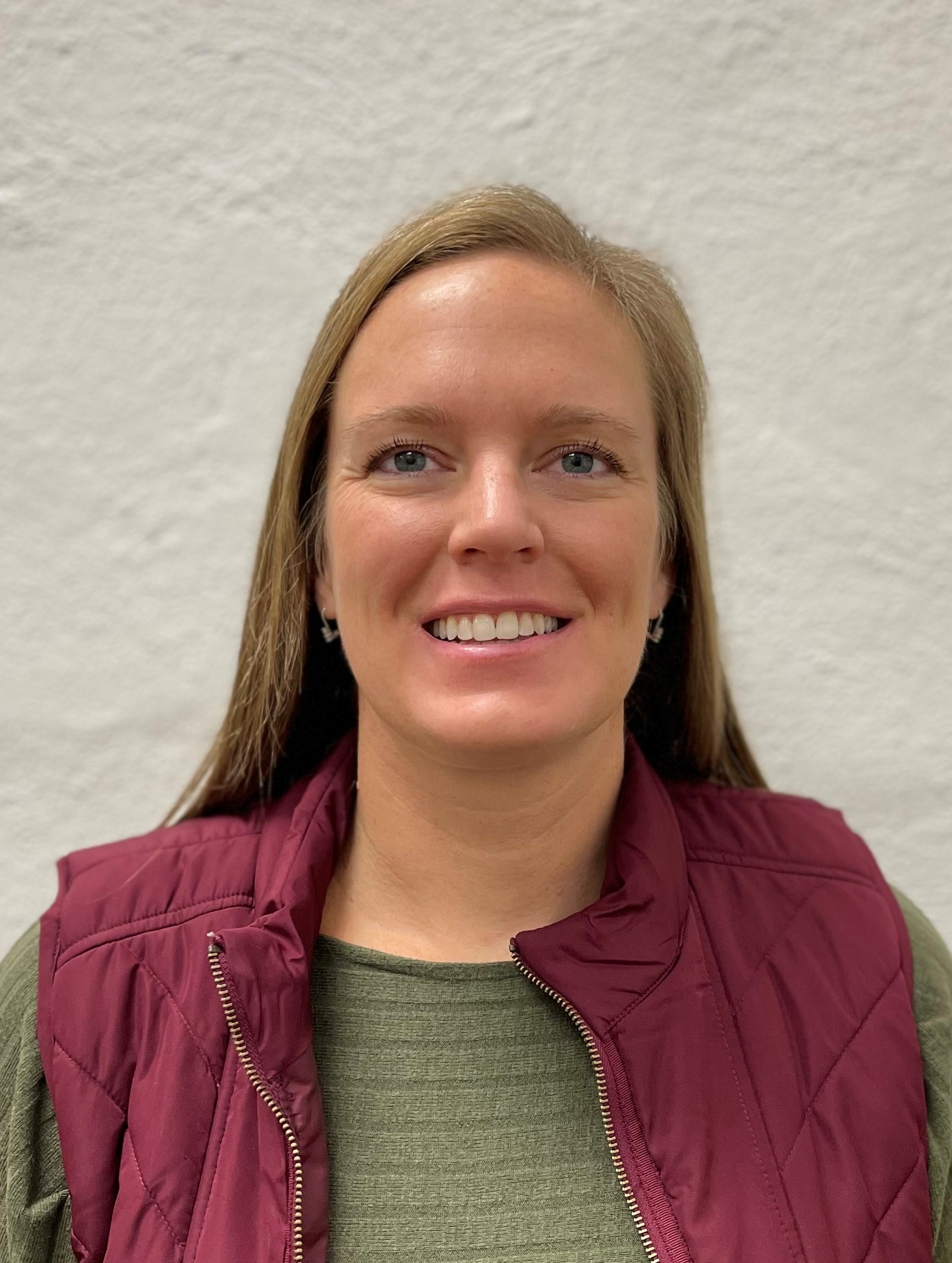
Illinois: Lisa Wilt
Ohio Community Schools, Ohio, IL
“Ohio Restoration”
Lisa Wilt was raised in a small town outside of Bloomington, IL. She has been married for 15 years and has 3 children with her husband, Jason. They live on their family farm where their children are the 5th generation to live in the home. Lisa started off as a Special Education Teacher’s aide in 2017 and in the 2018-2019 school year she taught High School Math. During that time, she found her love for teaching and decided to make it her career. She is now a third year teacher of Keyboarding, Computer Applications, Business and Agriculture with a Career and Technical Education licensure. Lisa’s philosophy in teaching is project based learning. She feels hands-on learning and application of what is learned is the best way to reinforce new concepts.
This project, Ohio Restoration, is two fold. First, the focus will be designing a landscape project that makes their building more attractive. Students will take the lead role in designing the project, ordering the supplies, and completing the work. Second, their focus will be on restoring the town of Ohio’s Main Street by making it more attractive. This will involve trimming trees, bushes and edging sidewalks. Additionally, the students are interested in planting new trees or shrubbery and painting.
The students will meet with the School Board and Town Council to discuss their project ideas. Once each Board approves the plan, students will begin to accumulate the tools and supplies necessary for each project. Once the tools and supplies are received, students will start growing plants, flowers (annuals and perennials) and vegetables. Students plan on using south facing windows in an area of the gymnasium to grow the plants.
The students believe that by completing this project, they will accomplish two goals. First, the school and town will be more attractive, and second, the students involved will develop a sense of pride in their school, town and one day their own home. Additionally, while the students are a part of making their community a better place, they will also be learning valuable skills that they might one day be able to use on their own property.
Massachusetts: Will Miller
Academy at Charlemont, Charlemont, MA
“Geodesic Dome Trellis Sculpture and Restorative Agriculture Program Expansion”
Will Miller is a science teacher at the Academy at Charlemont in Charlemont, MA, where he teaches biology, chemistry, and environmental science classes to students in grades 8, 9, 10, and 12. His 14 years of teaching have emphasized developing students’ creative skills of scientific inquiry and problem-solving using hands-on projects to engage students’ natural curiosity and joy of learning. He enjoys gardening, board game design, 3D printing, woodworking, and spending time with his family.
This project has three interconnected components, all driven by student input and effort. The first component is a research and design unit for geometry and environmental science students, who will research and design a model of a custom geodesic frame. Secondly, using locally sourced and hand-worked materials, students in several classes will then construct a large-scale trellis from their geodesic design. Lastly, the trellis will serve as support for a variety of annual and perennial plantings, which in turn will provide fruit and vegetables for use in the school kitchen and for donation to local food access initiatives. Students in environmental science and biology will conduct the research and cultivate the plantings for the trellis, and the Food and Gardens council will harvest and distribute the fruits and veggies.
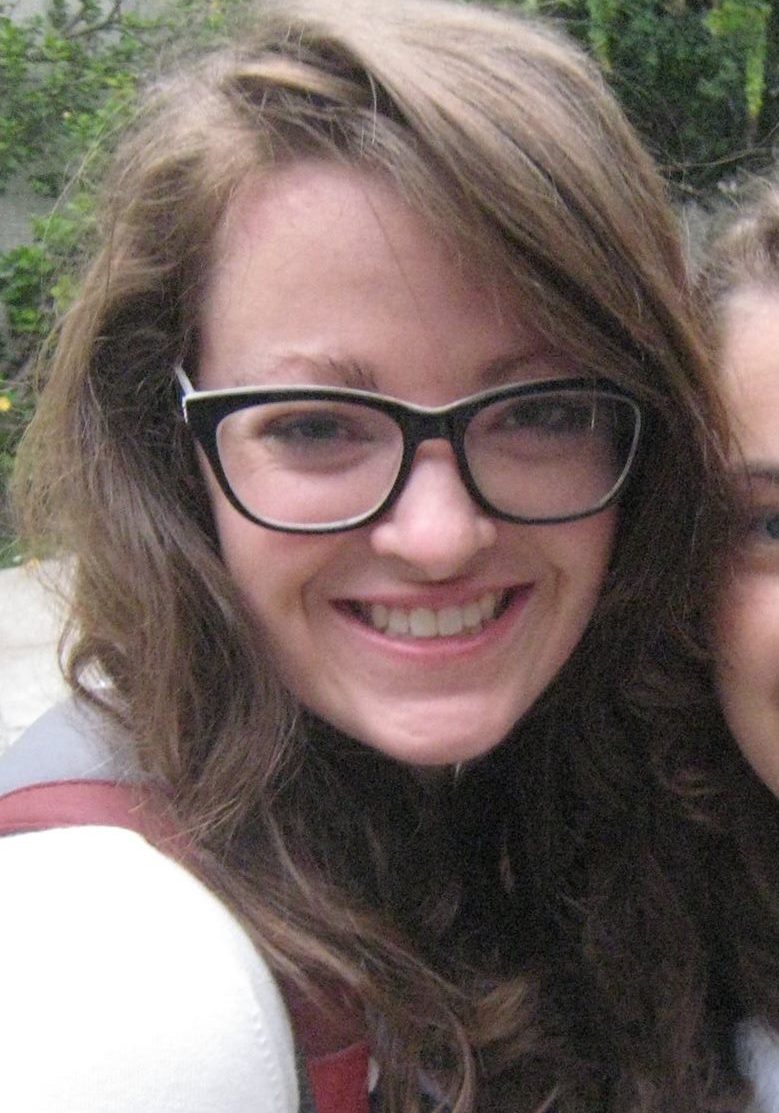
North Carolina: Heather Wright
Smoky Mountain High School, Sylva, NC
“Rural Places and Rural Pages”
Heather Wright is a teacher at Smoky Mountain High School in Sylva, NC where she currently teaches college-level English courses and AP Language and Composition. Heather's research interests include ways in which ELA teachers and support the voices of rural adolescent students.
With the "Rural Places and Rural Pages" project, the goal is two-fold: (1) to engage senior English students with exploring their own rural identities by creating place-based stories and (2) to provide area elementary students with stories in which they can see themselves as rural citizens in Western Appalachia. The first stage of the project will involve the students researching an aspect of their rural place (i.e., a famous figure, a legend, folk song, industry) and they will compose a short research paper to document their findings. The second phase will be the students taking the information from their research and crafting children's books that will engage elementary students. Students will be encouraged to use photos and illustrations to bring their books to life. Each student's book will be printed. The class will share their books with elementary students and the local community (via a public display). The final stage will have students find place-based, rural focused, and southern focused children's literature. In total, they will purchase 125 books for the surrounding elementary schools, in hopes to promote collaboration between the high school, elementary school and community.

